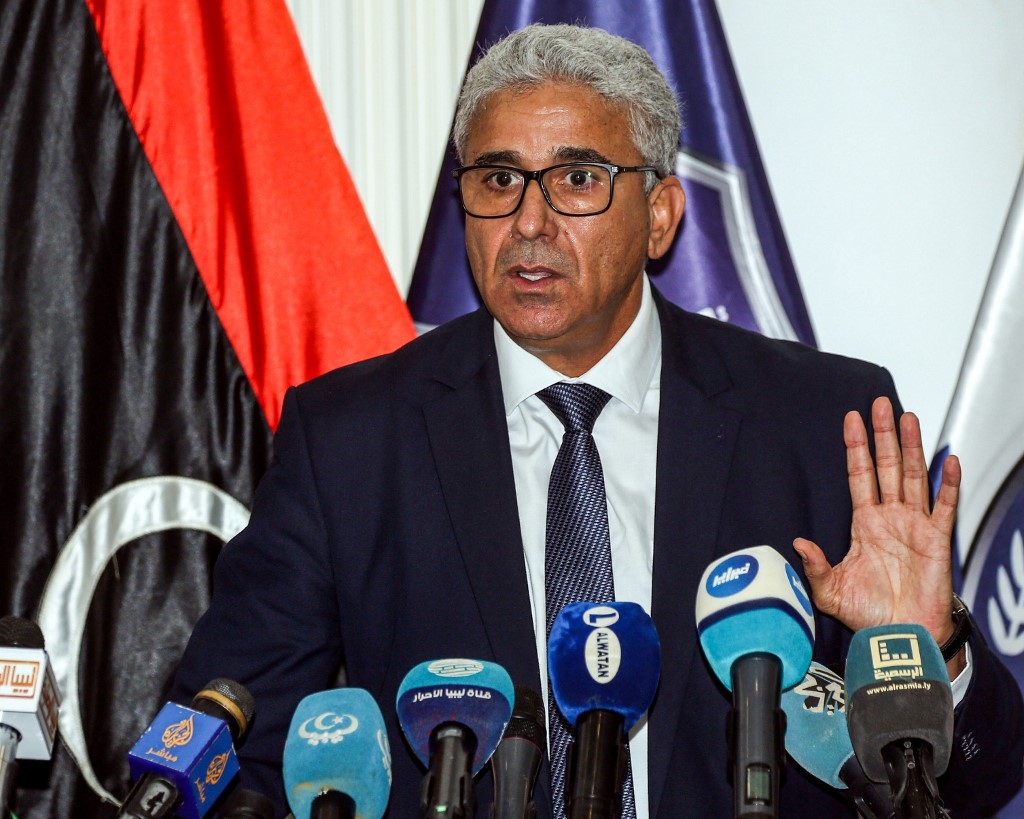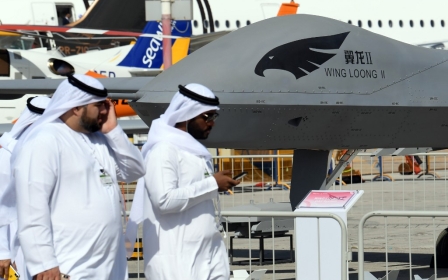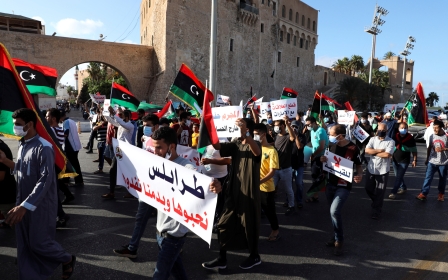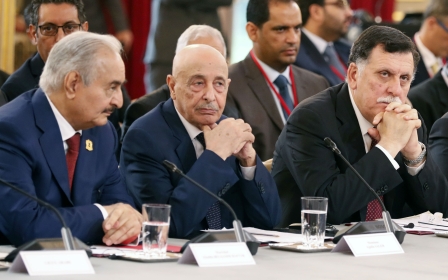Libya's GNA appoints new defence officials after protests

The head of Libya's unity government on Saturday appointed a new defence minister and army chief, after days of protests against poor public services and living conditions.
The decrees followed the announcement hours earlier by Libya's UN-recognised Government of National Accord (GNA) that it had suspended its powerful interior minister, Fathi Bashagha, pending investigations into recent violence against protesters in the capital Tripoli.
GNA chief Fayez al-Sarraj promoted deputy and acting defence minister Salah Eddine al-Namrush to the ministry's top job and appointed General Mohammad Ali al-Haddad as head of the army.
Haddad hails from Misrata, 200km east of Tripoli, the home of powerful armed groups that have fought on the side of the GNA in the battle against eastern-based military strongman Khalifa Haftar, who tried to seize the capital last year.
The GNA had announced Bashaga's suspension on Friday amid reports of growing friction between him and Sarraj.
New MEE newsletter: Jerusalem Dispatch
Sign up to get the latest insights and analysis on Israel-Palestine, alongside Turkey Unpacked and other MEE newsletters
Bashagha, who was nominated in 2018, played a central role during a 14-month offensive on Tripoli by eastern-based forces that the GNA repelled in June with military support from Turkey.
He is well regarded by the GNA's international backers and had announced steps to rein in the armed groups that hold real power in Tripoli. Loud gunfire could be heard over central Tripoli shortly after the decision was announced.
A decree issued by Sarraj said Bashagha would be investigated by the GNA leadership within 72 hours, and his duties would be assumed by a deputy minister, Khalid Ahmad Mazen.
A separate decree assigned a regional force headed by Osama Jweili, a commander from another militarily powerful city, Zintan, to help ensure security in Tripoli.
In a statement, Bashagha expressed readiness for an investigation, but said it should be televised to ensure transparency.
Anti-government protests attacked
Demonstrations began on Sunday in Tripoli, when protesters marched to the headquarters of the GNA to voice anger over what they called a "slow death" due to collapsing public services, corruption and economic pressures. Other rallies took place in Misrata, the country's third-largest city, as well as al-Zawya, west of the capital.
While police have monitored the protests, gunmen on Wednesday attacked a peaceful demonstration by "firing live ammunition indiscriminately," Bashagha said at the time.
The gunmen also kidnapped demonstrators, "sowing panic among the population and threatening security and public order," he added.
He promised to "protect unarmed civilians from the brutality of a gang of thugs" and said he was ready to use force to do so.
Meanwhile, Amnesty International said that armed men abducted at least six unarmed protesters at Sunday's protests in Libya's capital, and used live fire to disperse a demonstration, wounding others.
Both Amnesty and the UN mission in Libya, UNSMIL, called for an investigation into the violence.
Libya has endured almost a decade of violent chaos since the 2011 Nato-backed uprising that toppled and killed veteran dictator Muammar Gaddafi.
The country's main military fault-line is between forces that back the GNA and eastern commander Khalifa Haftar, who runs a rival administration.
The situation has been made worse by the coronavirus pandemic, which has depressed global oil prices and spread in the hydrocarbon-rich country despite social distancing measures.
The protests began days after the country's warring rival administrations announced separately that they would cease all hostilities and hold nationwide elections.
Middle East Eye delivers independent and unrivalled coverage and analysis of the Middle East, North Africa and beyond. To learn more about republishing this content and the associated fees, please fill out this form. More about MEE can be found here.




